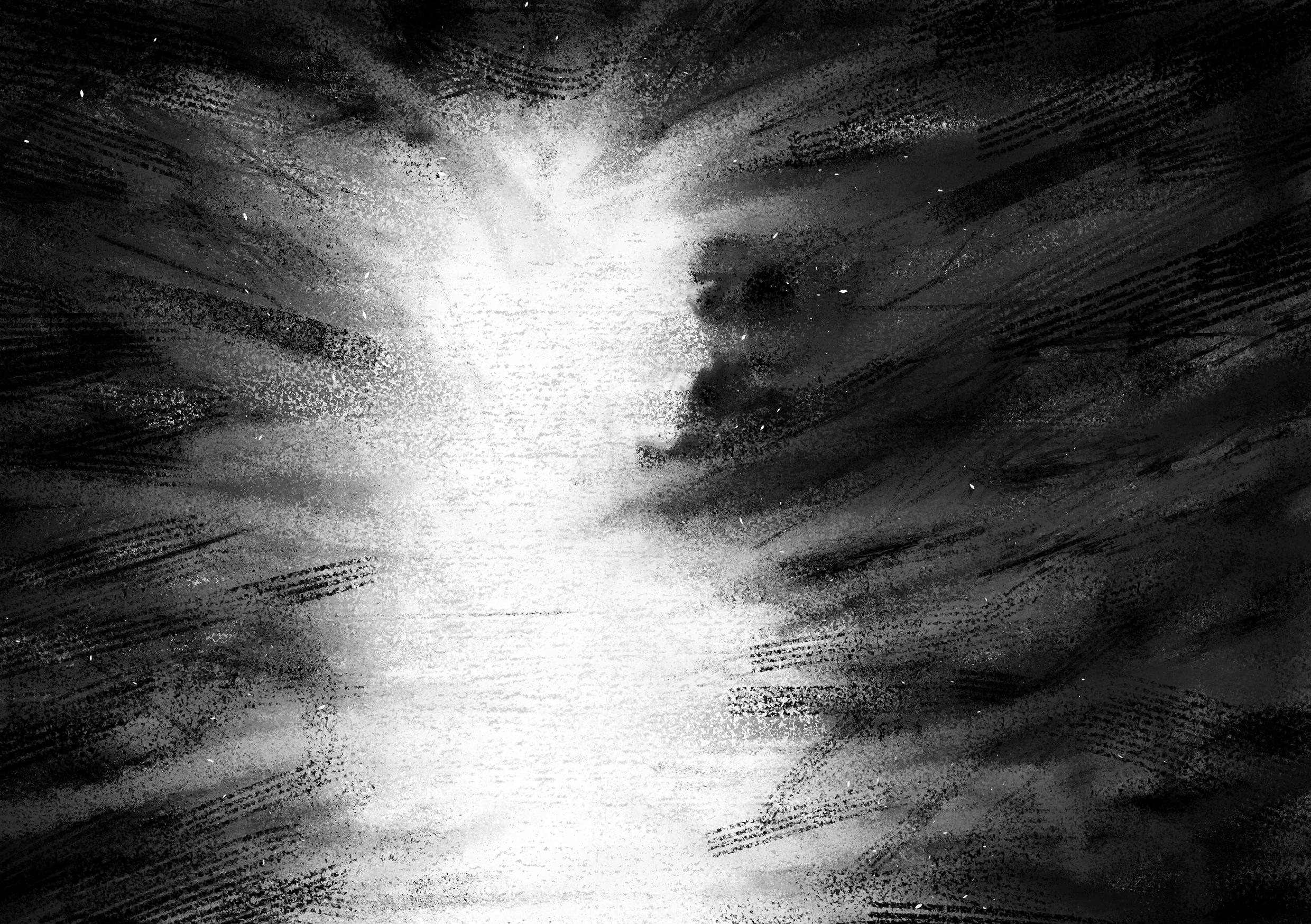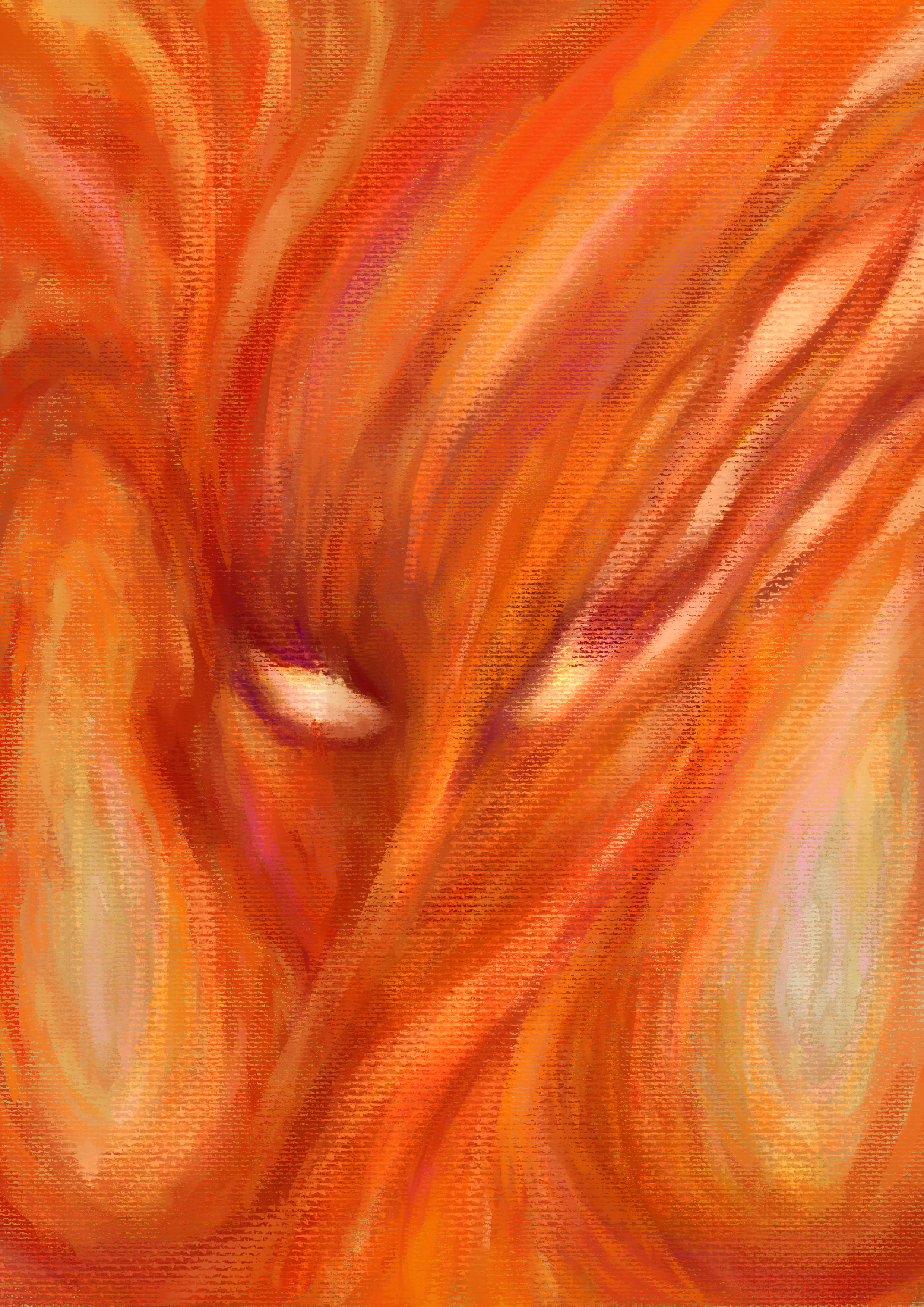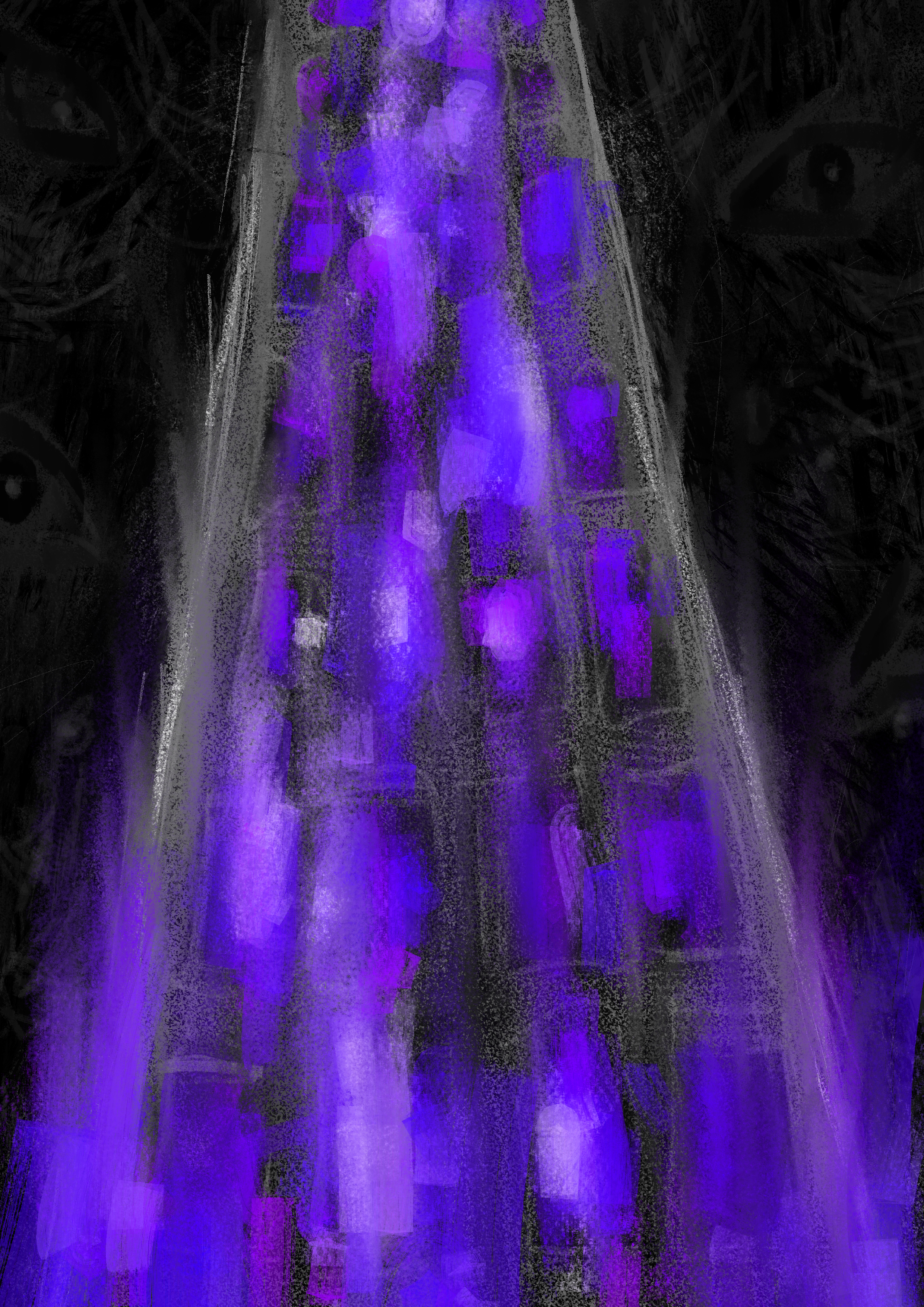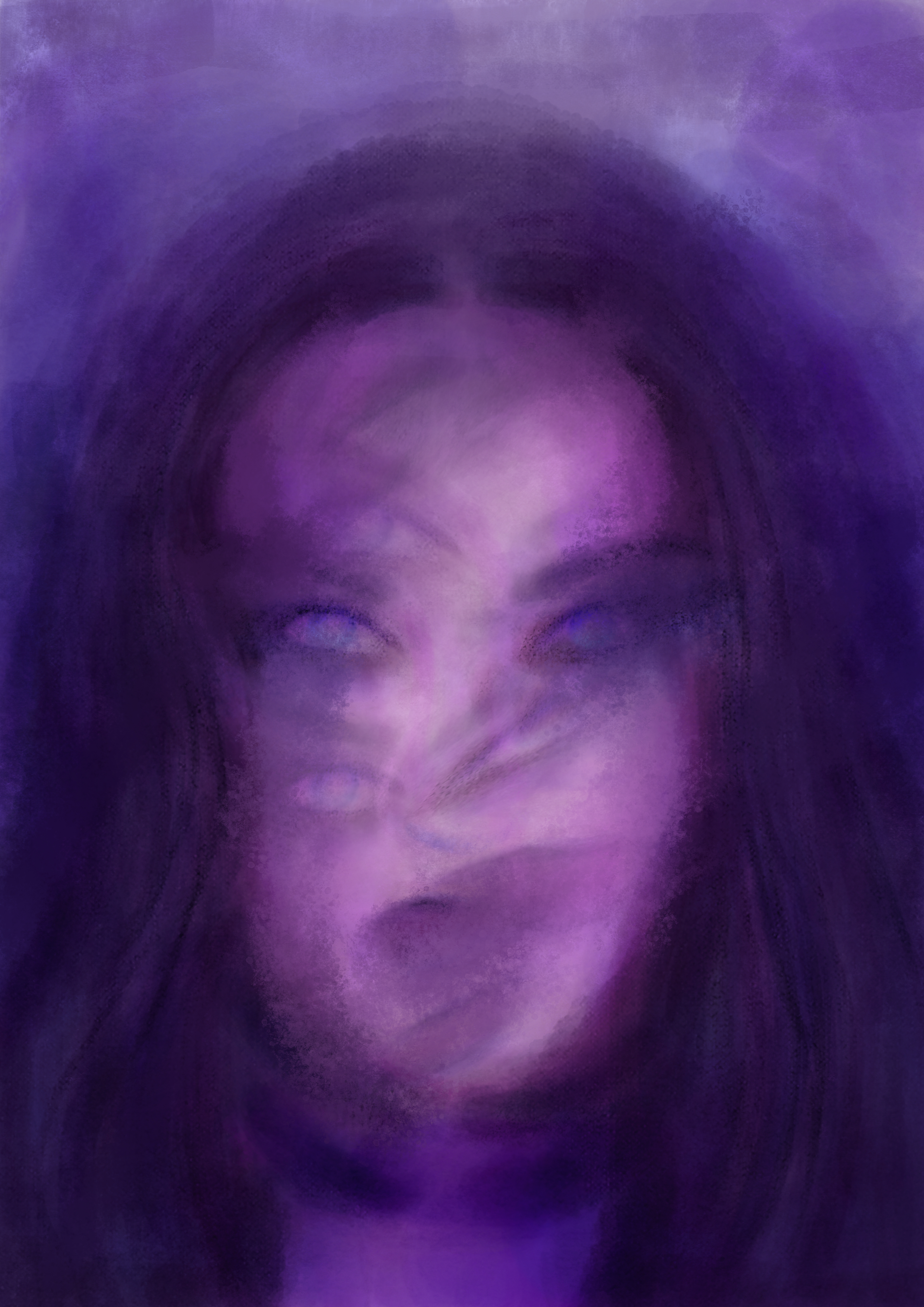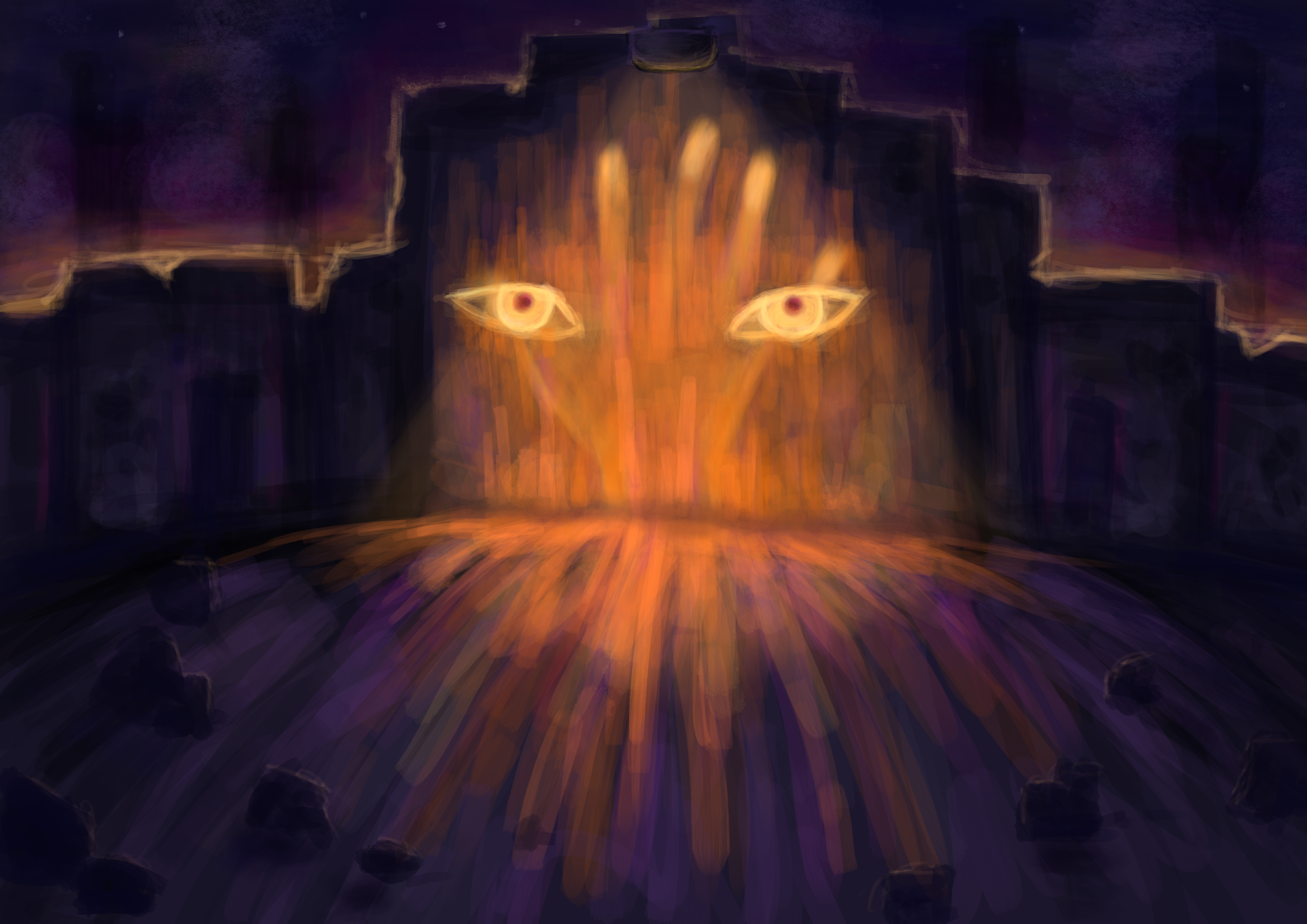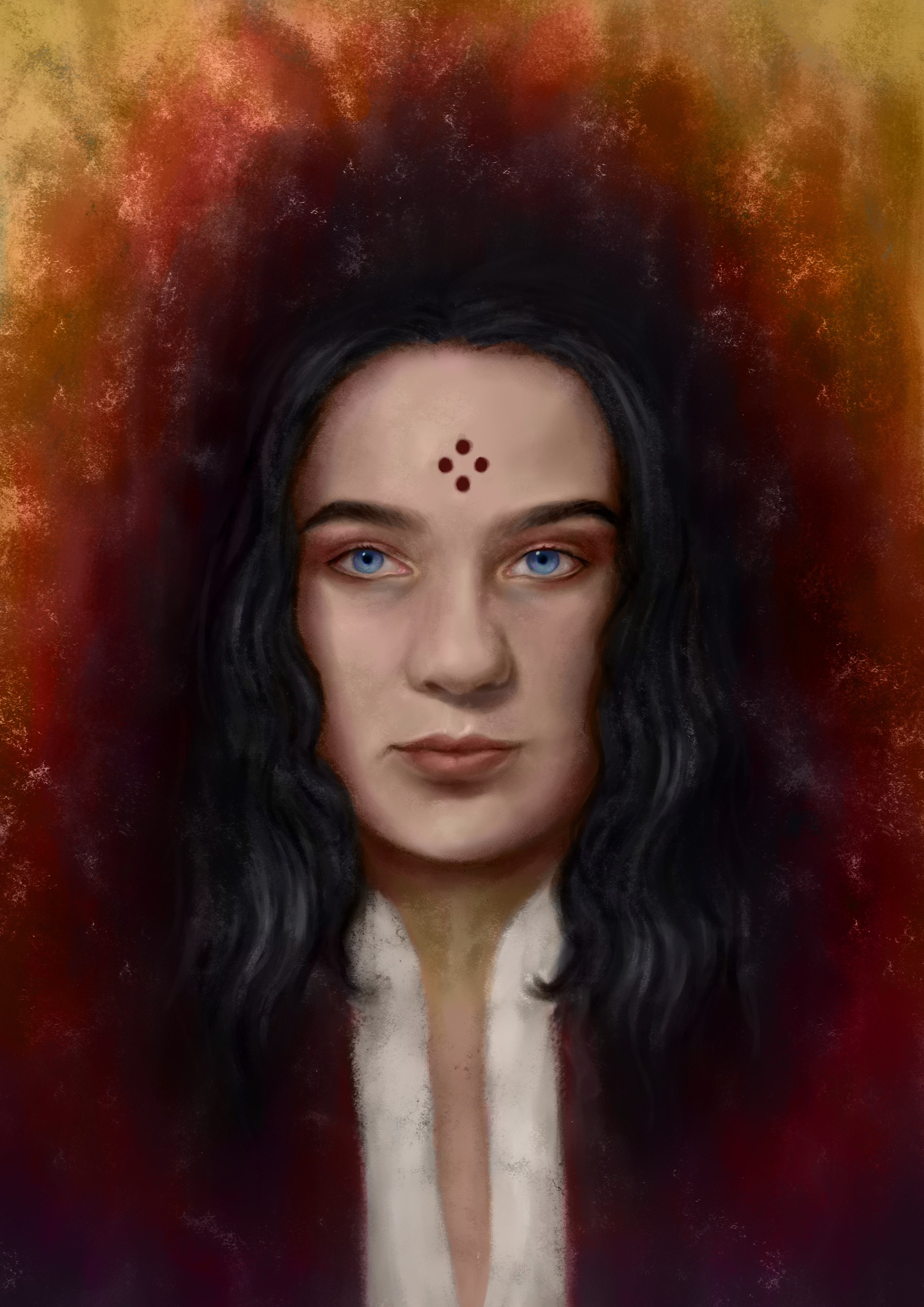Table of Contents
Judyth Eternity
Act V, Epilogue
EPILOGUE,
spoken by Judyth.
Now these veils have all been lifted,
The clockwork of our world has shifted;
What strength I have ’s mine own once more
And unconfined by one man’s law.
So listen long and listen well,
For I have untold tales to tell:
Soliloquies that shake the earth,
Songs of reweaving and rebirth,
And of resistance which encroaches
On the mist—for now approaches
Birnam Wood to Dunsinane,
And thus the tyrants’ pow’r shall wane.
For what doth move the poet’s hands
But songs unsung of starlit lands,
And vast, wine-darken'd, shimm’ring seas,
And branching boughs of outstretch’d trees?
And what doth form the poet’s heart
But lately waken’d love of art?
So lend your hearts, if friends we be,
And soon you’ll find we all are free.
She exits.
– by Ameal W
Love's Not Time's Fool
Judyth sits in the garden, peaceful and pensive. The garden has grown: it is beautiful, and it is wild, and it is perfect in its imperfections. During the night, she gazes at the stars as they dance. And when they play their violin, or when she sings – she could almost swear that they dance just for her.
She sets a goal - to learn as many instruments as possible. Her fingers callous from the playing of strings, the piano becomes a friend, she hasn’t quite got the hang of omnichord yet - but she’s sure she’ll get there eventually.
The seeds acquired from Shelly required the utmost care in the beginning. Judyth laboured over the sprouts. Anxiously watching them grow and grow. Now they run wild, there is no controlling the wildness of the garden. There’s not the grey of concrete and steel but the lush greenness of leaves and foliage.
After a while the flowers bloom, and Livith visits Judyth in the garden. Judyth tries not to laugh as Livith tries to restrain her smile when Judyth places one of these flowers into her hair. Acacia visits too, so does Antonius, so does John. The garden is never empty, the people in the garden are never alone.
Her hands are often in the soil, planting bulbs, watering flowers, she grows bushes of berries. Plucking them off the stem, she rolls them in their hand, letting the juice stain her fingertips.
Ink stains her fingertips too. She writes and she writes: poetry, prose, anything and everything. Isabel is underneath it all. She’s in the garden, she’s in the stars, she’s in the words on the page. There will be a day when Judyth leaves the Block to find Isabel, but there is no rush, there is nowhere Isabel can go that Judyth cannot follow. She is no longer the Judyth that Isabel knew. And that may have worried her at first, but it no longer does. When those thoughts begin to creep in she thinks of Sonnet 116:
“Love's not time's fool, though rosy lips and cheeks
Within his bending sickle's compass come.
Love alters not with his brief hours and weeks,
But bears it out even to the edge of doom:”
Shakespeare, maybe one day Judyth will even meet him too.
Highlights
1: “I am not what I am.” - Othello, Act 1 Scene 1
Jude's expression is almost unreadable. Is there pity, there? Is there the faint glow of carefully muted rage?
2: “What is honour? A word.” - Henry IV Part I, Act 5 Scene 1
“I left too many people alive on Earth. I left too many cities unburned.”
“And, holding me back from what? Ascension? What even is ascension? It doesn't make sense. None of it does. None of you can really know what happens when someone leaves this place. You're all just as flawed as you say I am.”
Her voice, just now boiling over with rage, gets low.
“You're still here.”
Jude smiles. Teeth.
“You're all still here.”
3: “Farewell the tranquil mind! Farewell content!” - Othello, Act 3 Scene 3
(from ‘His House’)
In his house, I am an echo. An echo of an echo of an echo.
If I saw my original, the first desperate call against the shadowed cave wall, would I know her? If I saw the holder of my heart, remade and rising from the flame, would I know her?
4: “Is this a dagger which I see before me,/ The handle toward my hand?” - Macbeth, Act 2 Scene 1
(from The Terrorist’s Interlude)
JUDE: I don't know why he– Why he keeps– Coming back. I burned his sonnet. I don't paint him. I wouldn't. I couldn't. I can't even paint myself. You pour from my hands. An absence. A flame.
(from The Terrorist’s Interlude)
Exit JUDE, via the staircase.
The basement is silent. All that remains are the wall-scratchings, FILBERT's body, and a pile of ash.
(Blackout.)
(End of play.)
5: “This above all: to thine own self be true.” - Hamlet, Act 1 Scene 3
6: “The poet’s eye, in a fine frenzy rolling,/ Doth glance from heaven to Earth, from Earth to heaven” - A Midsummer Night’s Dream, Act 5 Scene 1
“I saw hands destroy what I loved, and I wanted to know that mine could do the same. That was safety. To know that.”
She gazes around, eyes sliding over the buildings of the block, taking in its confused, half-stitched fragility.
“But what was destroyed? I still have the pieces of what I loved. I'm not even dead. I'm still alive, because they live in me.”
“And then… retroactive exegesis. Poetry, brushstrokes, song. Fire, sunlight, grief. A soliloquy that shakes the earth. A hand in mine, again. A sea, wine-dark, shimmering. Impossibility. Possibility. Both, surely alive in such indeterminable vastness.”
7: “And this our life, … / Finds tongues in trees, books in the running brooks,/ Sermons in stones, and good in everything./ I would not change it.” - As You Like It, Act 2 Scene 1
Trees, trees, trees. Roots, spreading, pulling together the ground hidden beneath the mist.
“Yeah, it's rebellion. What does it mean, to grow a forest in this place? We're rewriting the world.”
